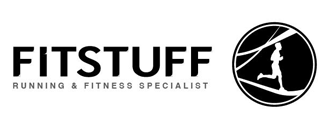Race preparation
Brutal Event Preparation
Military training areas are amongst the most physical and demanding areas that we have chance to train/compete in. It is what gives the Brutal series a cut above the rest. All of this however comes at a physical cost to those who partake in these events.
So to enjoy the events a little more read on:
When most of us run we tend to sit within or at the top end of our aerobic heart rate training zone - this makes us a one dimensional runner. When training for a Brutal run we need to transform you into a 3 dimensional runner. By addressing the following, along with the Drummond Clinic, we will help you to transform your off road running experience.
Dimension 1
Experience what it feels like to work above the aerobic zone - however, this is what hurts us, it burns in the legs and raises our breathing rate disproportionately. If we are not used to being in this zone our performance will deteriorate quickly and we will need slow down in order to recover.
Train like you compete. Make your training ground similar to that of your competition. If you train on nice smooth tarmac on flat routes your body will not be conditioned to run on:
Single tracks
Up hills
Down hills
Through ditches
Over and under fences.
If you are unsure what to expect from the run you have entered, you may want to attend one of the Brutal Training Sessions - You will certainly be fully briefed by the end!
If you are not used to mixing up your running with the above inclusions, then introduce them to your training gradually allowing the body to adapt to the changes progressively.
Think of running as a skill - Take running up and down hills. A great deal of time can be lost by running these components or an event badly, or if you look on the flip side, a lot can be gained (e.g. Saving 10 seconds per up and down - on a run with 10 hills we can save 3 mins and 20 seconds by running clever).
REMEMBER: Good Practice Makes Perfect
Dimension 2
Leg Strength - Leg strength can be developed with your running alone, but greater gains can be made by including some leg exercises in your training programme. By moving from the Legs 1 to the Legs 2 programme (below), an athlete can move on from developing low level dynamic strength using body weight to that of strength and power. This will help give you a good amount of spring to your running (something that the majority of us have lost, which makes us heavy runners / plodders). These exercises should be done 2-3 time per week to get a good benefit.
Legs 1 Reps Sets
Deep Squats: Reps 20 | Sets 1 / 2 / 3
Lunges: Reps 30 | Sets 1 / 2 / 3
Hip Bridging: Reps 15 | Sets 1 / 2 / 3
Step Ups: Reps 30 | Sets 1 / 2 / 3
Once you complete the above move on to the following:
Legs 1 Reps Sets
Power Squats: Reps 20 | Sets 1 / 2 / 3
Power Lunges: Reps 30 | Sets 1 / 2 / 3
Dynamic Single Leg Hip Bridge: Reps 15 | Sets 1 / 2 / 3
Step Ups: Reps 30 | Sets 1 / 2 / 3
Click here for a 6 Week Leg Strength Program
Dimension 3
Functional Core Strength - For your body to work optimally, your CORE must be functional and strong. So many of us shy away from doing this type of work, but by adding this in you will see some substantial gains in your movement and running abilities. The CORE involves the muscles of the body and not just the abdominals. By challenging these muscles athletes can ward off the problems that are created by sitting down so much (driving, at your desk…). Running will help to activate the CORE, but will also need that nudge to assist in injury prevention and increase our own personal performance. These exercises are by no means exhaustive, but serve as a great start to supplement your training.
Press Ups: Reps max
4 Point Kneeling (opposite arm Leg lift) Reps: 10 | Sets 1 / 2 / 3
Slide Plank: Reps 15 | Sets 1 / 2 / 3
Sit Ups: Reps 30 | Sets 1 / 2 / 3
Alternate Leg Squat Thrusts: Reps 15 | Sets 1 / 2 / 3
Back Raises: Reps 20 | Sets 1 / 2 / 3
Stand Up to Lie Down: Reps 15 | Sets 1 / 2 / 3
For more information on Physiotherapy, Injury Recovery, Gait Assessment, Running Training, please feel free to contact the Drummond Clinic or give us a call on 01628 639532 to have a chat with one of the team.





